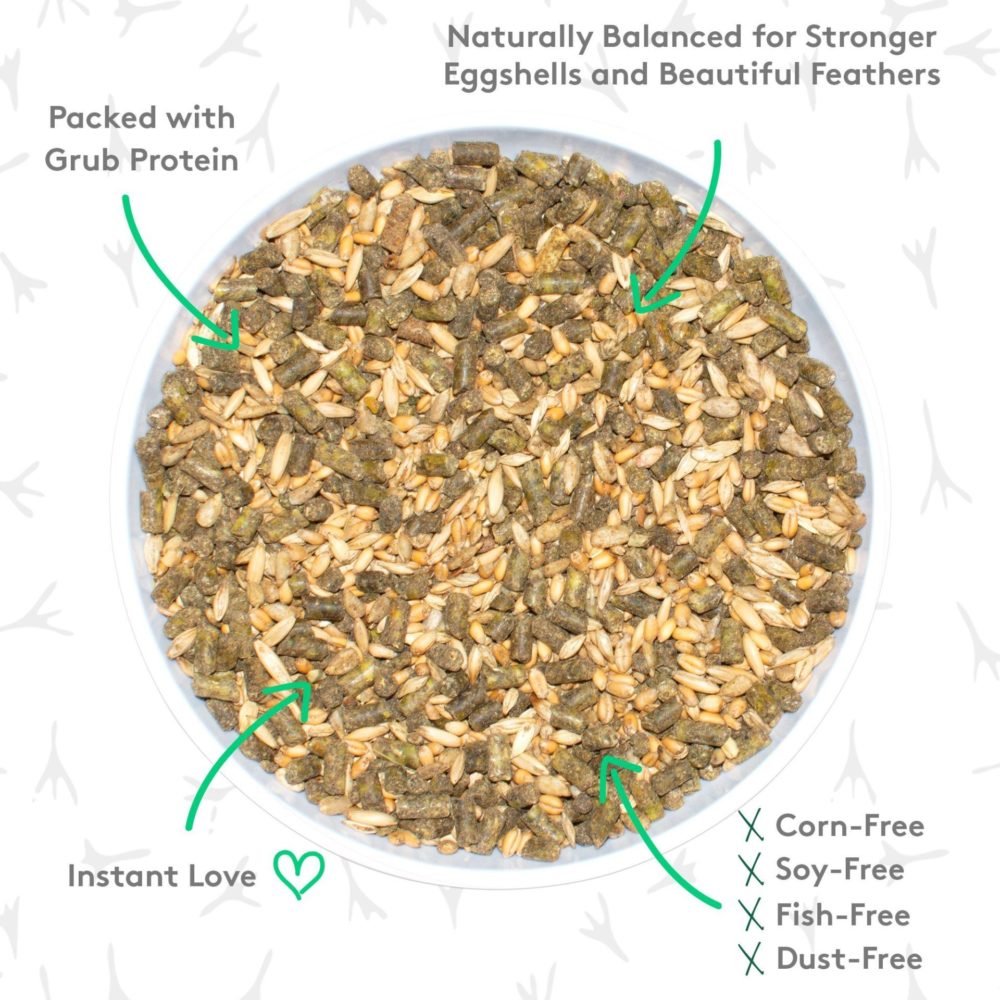“People are losing their clucking minds over backyard chickens,” reads a recent headline in The Hustle about how the coronavirus pandemic is fueling a resurgence of the US amateur poultry farmer.
Will this new chicken run spur a similar craze for backyard black soldier flies — a tasty and nutritious snack for these trusty lockdown companions?
In Georgia, a state known for its gigantic poultry industry, investor Overline VC reckons so. It has led a $2.9 million seed funding round into Grubbly Farms, an insect foodtech startup offering dried grub delivery services to small broods of chickens. (Also flitting into the round were Oval Park Capital, Create-X and Techstars.)
The black soldier fly is garnering attention for its remarkable ability to grow rapidly, break down food waste into fertiliser, and ultimately form a nutritious livestock feed for fish and fowl.
So far, Grubbly has decided against a distributed model of mini-farms onsite, as with the UK’s Better Origin. Nor is the team set on building huge centralized production facilities like those of Enterra, AgriProtein, NextProtein or Entocycle. Instead, the Grubbly founders learned during their pilot stage that the best go-to-market was to collaborate with their production rivals, and focus on a direct to consumer play, with a well-branded feedtech product straight to affectionate owners of backyard chickens.
Poultry-otic duty
“When it comes to treats, there aren’t so many options right now,” said Overline’s managing partner Michael Cohn, who has become a backyard farmer himself in the months since the outbreak of Covid-19. “Understanding the source of nutrition is really important for many backyard owners,” he added, noting how this was about both care for pets welfare, as well as prioritising the health of a family’s source of nourishing eggs.
Overline’s other managing partner, Sean O’Brian, also noted the “high correlation” between backyard chicken owners and owners of cats and dogs, meaning acceptance of a rich black soldier fly diet for poultry could one day equate to a similarly healthy dietary shift for other pets.
“We like the environment friendly play here,” said O’Brian. “(The Black Soldier Fly’s) food source is food waste.”
So, will Grubbly create a similarly environmentally friendly product for humans as well as pets? Bug burgers for humans are not ruled out by this pair of investors. Though for now, they put greater store on pets and livestock.
Bug burgers, biomaterials
Other startups outsourcing the production and breeding of Black Soldier Flies have diversified into areas beyond pet food too. Some now focus on the extraction of valuable chemicals from insects. Singaporean entrepreneur Chua Kai-Ning co-founded a startup back in 2017 called Insectta, which set out as its own farm for animal feeds but recently pivoted to the extraction of medical biomaterials.
Superflies?
There are debates in the entomological community about how the flies themselves can be even more useful. At a conference just before lockdown hit London, BetaBugs CEO Thomas Farrugia explained how the Black Soldier Fly could be bred to be even more voracious, and to grow even faster; their short life cycles made them ideal candidates for observing the effects — or side effects — of gene editing.
Regulations on gene editing of insects may end up being lighter than for larger livestock, he suggested, and so the upside could be faster synthetic evolution.
Moreover, Black Soldier Flies are not the only insects on the startup menu of ento-preneurs. Production of mealworms — the larval stage of the Mealworm Beetle — is a popular choice for insect startups, especially after Ynsect’s robotized mealworm farming tech broke records with its $125 million Series C round last year. Other insect choices for startups include bees, crickets, grasshoppers, and locusts.





